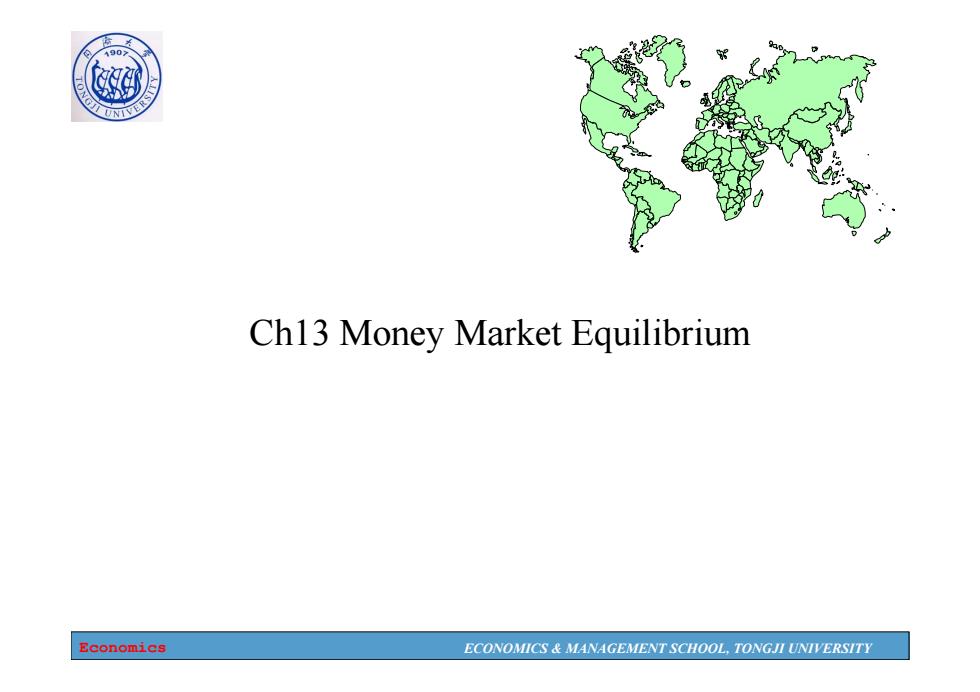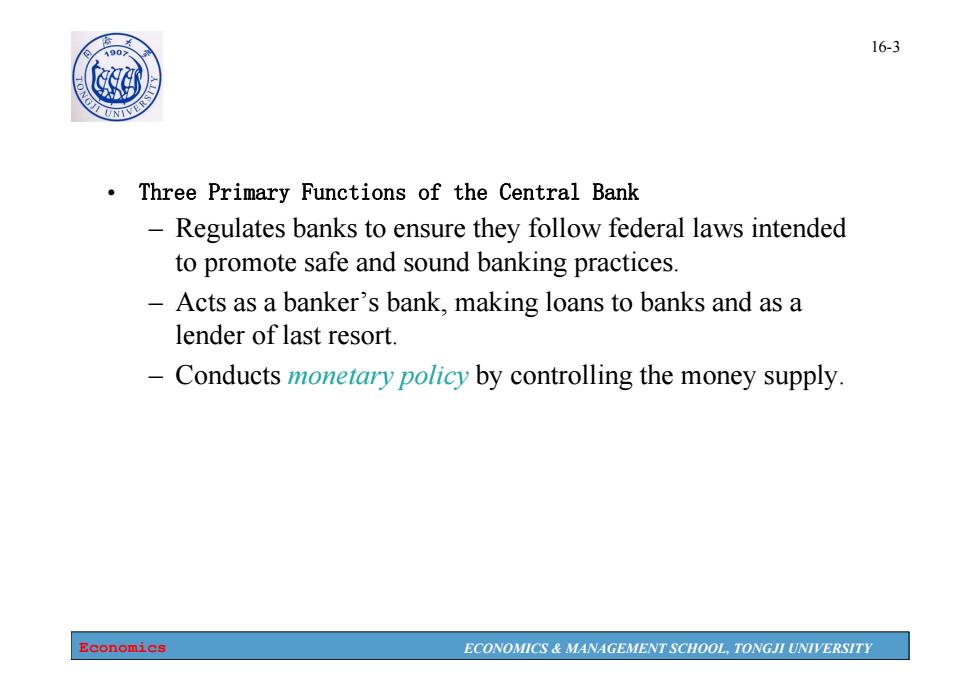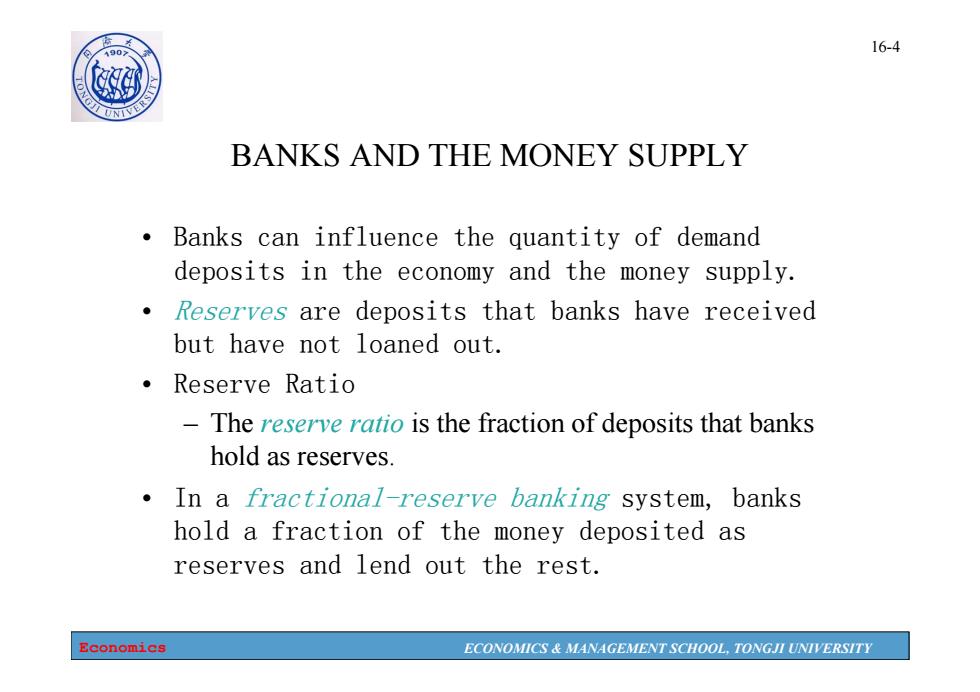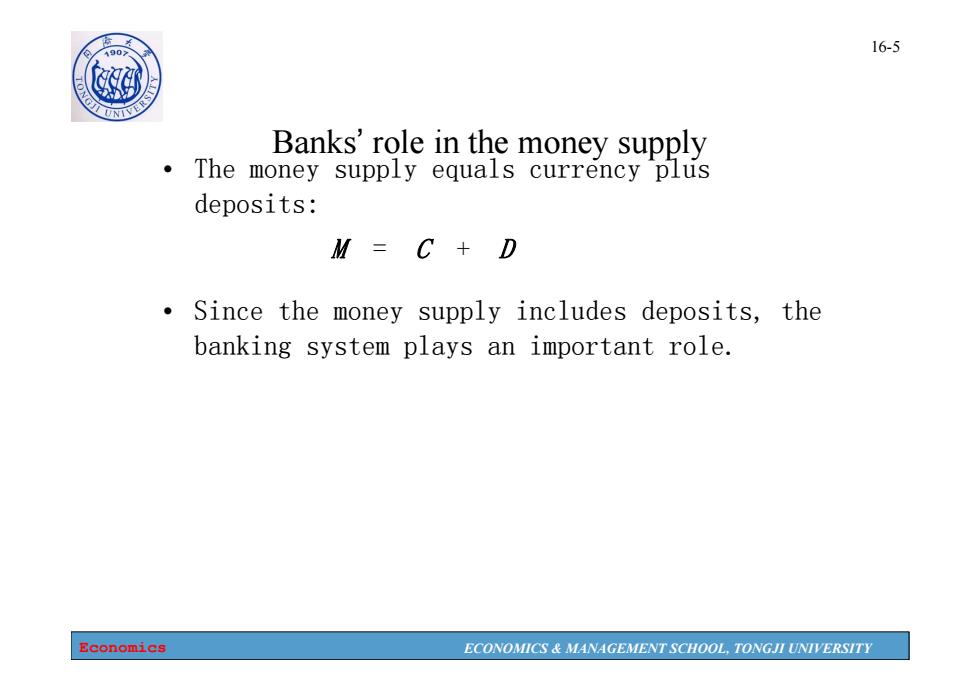
0 Ch13 Money Market Equilibrium Economics ECONOMICS MANAGEMENT SCHOOL,TONGJI UNIVERSITY
Economics ECONOMICS & MANAGEMENT SCHOOL, TONGJI UNIVERSITY Ch13 Money Market Equilibrium

1907 16-2 13.1 Money Supply Money is the set of assets in an economy that people regularly use to buy goods and services from other people. Money has three functions in the economy: Medium of exchange Unit of account -Store of value Economics ECONOMICS MANAGEMENT SCHOOL,TONGJI UNIVERSITY
Economics ECONOMICS & MANAGEMENT SCHOOL, TONGJI UNIVERSITY 16-2 13.1 Money Supply • Money is the set of assets in an economy that people regularly use to buy goods and services from other people. • Money has three functions in the economy: – Medium of exchange – Unit of account – Store of value

16-3 Three Primary Functions of the Central Bank -Regulates banks to ensure they follow federal laws intended to promote safe and sound banking practices Acts as a banker's bank,making loans to banks and as a lender of last resort. Conducts monetary policy by controlling the money supply Economics ECONOMICS MANAGEMENT SCHOOL,TONGJI UNIVERSITY
Economics ECONOMICS & MANAGEMENT SCHOOL, TONGJI UNIVERSITY 16-3 The Federal Open Market Committee • Three Primary Functions of the Central Bank – Regulates banks to ensure they follow federal laws intended to promote safe and sound banking practices. – Acts as a banker’s bank, making loans to banks and as a lender of last resort. – Conducts monetary policy by controlling the money supply

190 16-4 BANKS AND THE MONEY SUPPLY Banks can influence the quantity of demand deposits in the economy and the money supply. Reserves are deposits that banks have received but have not loaned out. ·Reserve ratio The reserve ratio is the fraction of deposits that banks hold as reserves. In a fractional-reserve banking system,banks hold a fraction of the money deposited as reserves and lend out the rest. Economics ECONOMICS MANAGEMENT SCHOOL,TONGJI UNIVERSITY
Economics ECONOMICS & MANAGEMENT SCHOOL, TONGJI UNIVERSITY 16-4 BANKS AND THE MONEY SUPPLY • Banks can influence the quantity of demand deposits in the economy and the money supply. • Reserves are deposits that banks have received but have not loaned out. • Reserve Ratio – The reserve ratio is the fraction of deposits that banks hold as reserves. • In a fractional-reserve banking system, banks hold a fraction of the money deposited as reserves and lend out the rest

16-5 Banks'role in the money supply The money supply equals currency plus deposits: M=C+D Since the money supply includes deposits,the banking system plays an important role. Economics ECONOMICS MANAGEMENT SCHOOL,TONGJI UNIVERSITY
Economics ECONOMICS & MANAGEMENT SCHOOL, TONGJI UNIVERSITY 16-5 Banks’ role in the money supply • The money supply equals currency plus deposits: M = C + D • Since the money supply includes deposits, the banking system plays an important role